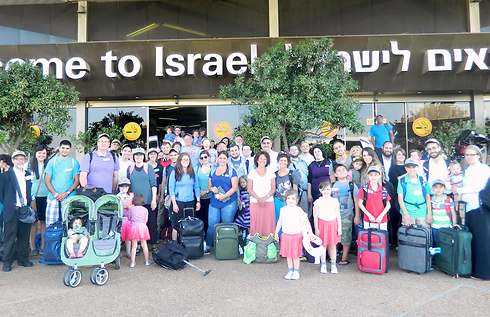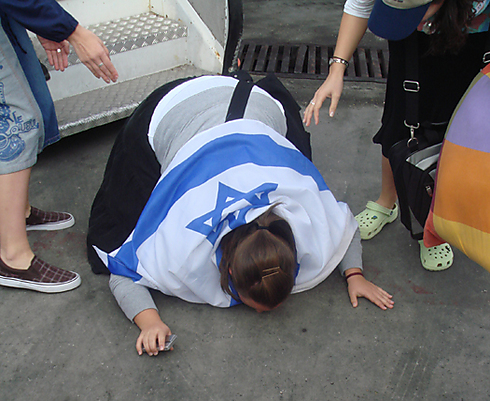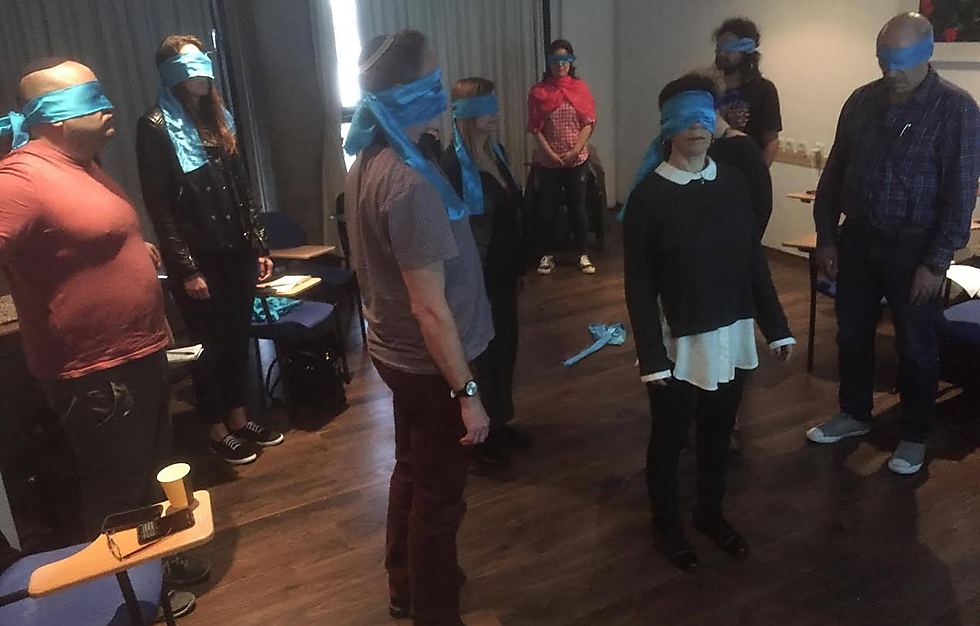
How to survive the Israeli jungle: The 'coachers' who help new olim
It's not easy to be a new immigrant in Israel. No one prepares them for the different mentality, the complex reality, the cultural gaps and the language barrier. This leads quite a few olim to pack their bags and return to their birth country. But some, like the startup Olim Advisors and Keep Olim organization, are working hard to change that.
If it's not always easy for native-born Israelis—who also find themselves battling Israeli government bureaucracy, landlords and even the owner of the local kiosk—imagine how new immigrants feel when they encounter the day-today difficulties of life in Israel.
But life in Israel is not all problems; it also includes a lot of solutions. To the immigrants' aid come the coachers, a new startup offering help to the new Israelis from the moment they get off the plane.
Lara Itzhaki and her brother Rafi recently founded the company Olim Advisors with a simple mission statement: "Making aliyah isn't easy. As olim, we know this first-hand. We are here to make your aliyah easier."
An oleh (olim in plural) is a new immigrant arriving in Israel, while making aliyah is the act of immigrating to Israel.
'Israelis are warm, but different to Americans'
Itzhaki, who made aliyah in 2010, says that when her brother decided he wanted to move to Israel as well, her husband helped by organizing a lot of things for him in advance, which made the absorption process much easier."I realized that if there was a company that took care of the basic necessities for olim, it would make it much easier on them in the first few months," she explains.
"Families come here, and there are so many things they need to take care of: housing, schools, and even finding a doctor who speaks English," Itzhaki says.
"We accompany them for six months. In addition to the concrete support of accompanying them to government offices, helping them buy necessities, and advising them when they sign contracts, we also try to provide them with emotional support. Some of the new immigrants deal with a lot of distress, mostly in the first few months. We send them to businesses that support olim and give them discounts, and in general try to put them in touch with the right people."
Itzhaki's company offers several different packages, with the most basic one costing $499 per person, while the premium package, which includes support and help in almost all fields, costs $799. A third medical-only package costs $1,849 and includes help in navigating the Israeli medical system.
What challenges do new immigrants face, particularly in their first few days in Israel?
"It's mostly cultural differences and the language barrier: how to go to the grocery store, how to read a letter. The services here are different, the culture is different. The Israelis are very warm but very different to the Americans, and you need to learn how to navigate that. Sometimes people land here without knowing how much difficulty they are going to face."
Turning a disadvantage into an advantage The ones most familiar with the kind of difficulties new immigrants face are the olim organizations. Most of the founders and employees of these organizations have experienced the long road towards becoming an Israeli themselves. One such organization, Keep Olim, recently started a "university" for new immigrants, where courses are given at a nominal price. One of these courses is taught by Sharon Aizen.
Aizen, an expert in consequential thinking, explains that "the course for olim came to be after we've analyzed their problems—being away from family, the difficulties they face and their struggles in rejoining the work force—and decided to give them the tools to create a better life here in Israel. We wanted to help them stop being victims and take charge, to see how to overcome the difficulties."
"There are quite a few olim who have left Israel because of an unsuccessful absorption experience and personal problems, and this could have been avoided. We often lose talented and wonderful people, and our goal is to stop people from leaving," she continues.
Life in Israel is not easy. Perhaps we should concede that not everyone can adjust to the Israeli mentality?
"While there are undoubtedly challenges, everyone can succeed in my opinion. It depends very much on a person's desire and determination. If there is a willingness to learn the tools and use them, then I believe anything is possible," she says optimistically.
"In a workshop we did with the olim we gave them initial tools to change directions. We examined people's individual cases and saw where their difficulties lie. A lot of their issues came from misinterpreting a situation, which puts them into behavioral 'loops.' We need to show them how to change their behavior, give them direction."
Does it take long for a change to happen?
"Some tips can be implemented on day one. For example, we worked with one participant about her professional image and the fact she feels undervalued despite her skills. The process we went through during the workshop helped her recognize her strengths and, at the same time, turn a disadvantage into an advantage. The language barrier, for example, could become a significant advantage in work places that look for native English speakers for interaction with other countries and clients abroad. Up to that moment, that participant settled for minimum wage jobs, while abroad she had managed a successful company.
"She's not the only one. There are many olim who, when they come to Israel, settle professionally and their self-confidence plummets. The goal is to give them back what they already had to begin with and give them the tools to use their skills to their advantage."
LiAmi Lawrence, the founder and director of Keep Olim, says Aizen's course was born of an understanding of the kind of distress new immigrants experience. "After the 'high' of making aliyah, there is a crash; and this is where we come in. It's a wakeup call for the olim—you're already in Israel, so what are you going to do now? Give up the dream, or fight and succeed?
"The course is part of a series of activities we organize, among them is also emotional support offered at a subsidized price, and social activities to host and absorb olim. So far, we've done several courses and the more resources we get, the more we can offer and aid olim."













